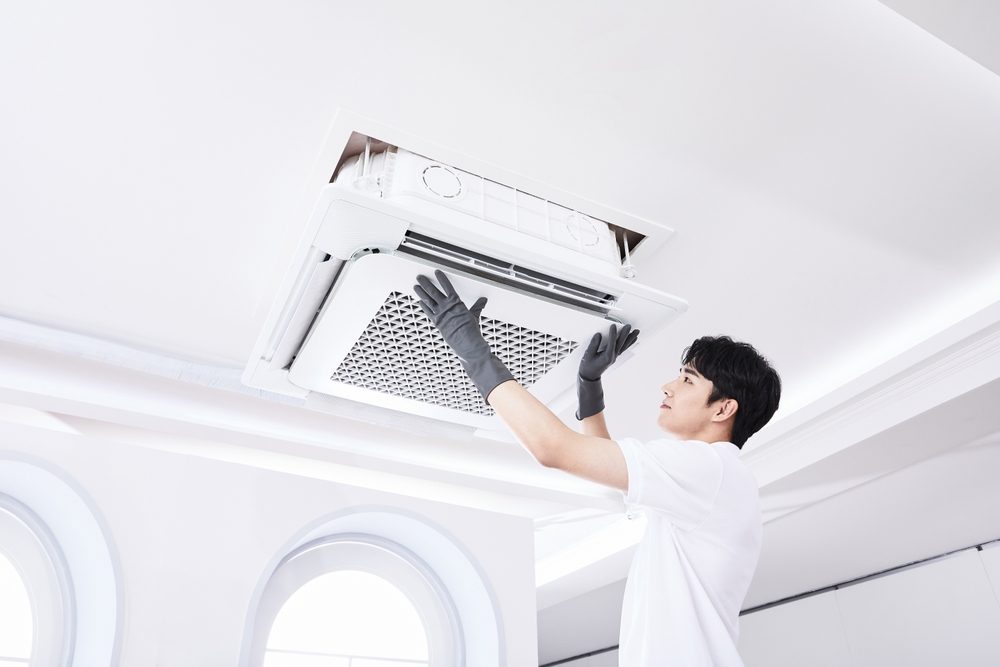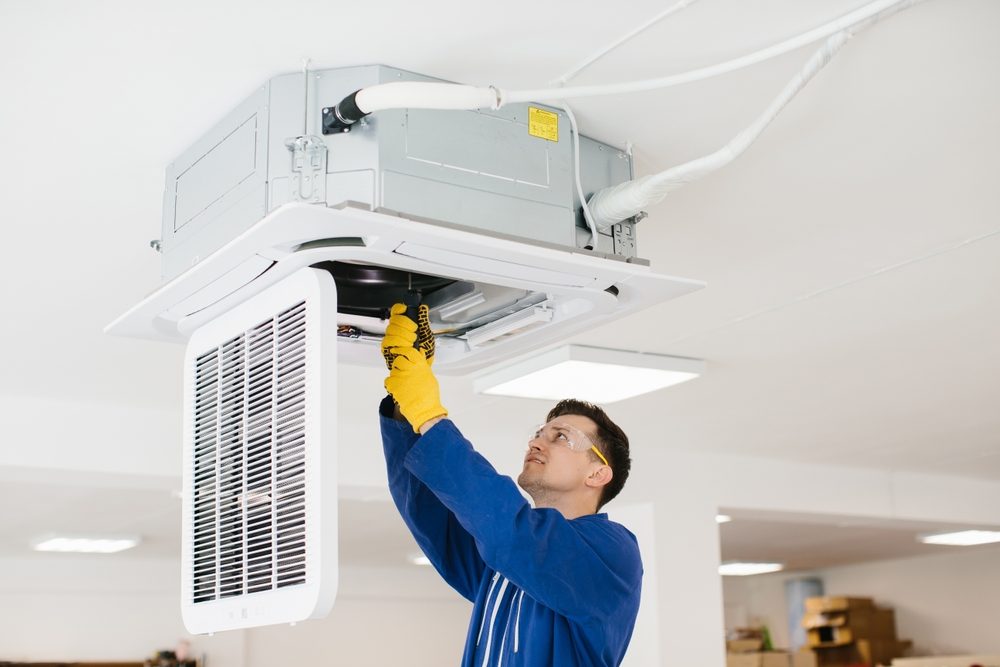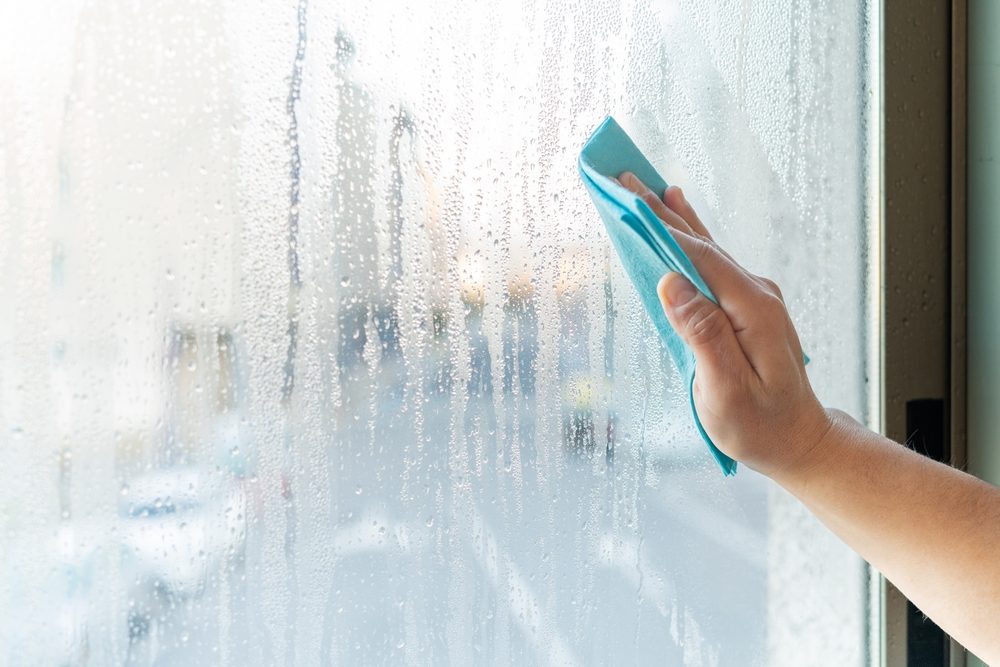
When you have mold in your HVAC system you have a problem. It usually starts from an excess of moisture which creates the kind of environment where mold can thrive. Along with moisture, the other key ingredient is a tight restricted space. In other words, the inside of your HVAC system. Mold starts to grow, and the problems just go from there.
An HVAC system which has mold can easily spread spores throughout your home. That means poor air quality, to say the least, as well as possibly causing allergic reactions. For those who already have respiratory issues, it can further complicate the situation. So understanding how to protect your HVAC system from this problem is vital in order to keep your home environment as healthy as possible, and keep your unit working at peak efficiency.
In this article, we will go through what you need to know to keep your HVAC system free from mold. We will focus on what action to take in order to keep moisture levels under control, and how routine maintenance that you can do yourself, along with having a professional do a full check from time to time, will mean that you can stop mold before it gets a grip on your HVAC system. We will also examine the common causes of mold in HVAC systems and point out the signs that may indicate there is a problem and what you can do about it. Our experts at Daikin will guide you through everything you need to know to prevent mold growth in your HVAC system.
Common causes of mold in HVAC systems
The common causes of mold in HVAC systems are as follows: excess humidity, dirty filters, clogged drain lines, and poor ventilation. Let’s now look at these in more detail:
Problems with Humidity levels: When the humidity rises above 60% (ideally it should be between 30% - 50%) then you are going to get a build-up of condensation. It’s likely to occur around the ducts and coils and can mean that mold spores can grow. To keep moisture in your room at the optimum level, consider using a dehumidifier or select a system that has built-in humidity control. These can both help regulate moisture levels. Daikin offers a wide variety of products that address this problem, for rooms of all sizes.
Problems with Air Filters: It’s easy for trapped dust and debris to get stuck in the air filters and end up being a food source for mold. As a way to solve this, it’s advisable to replace or clean the filters on a regular basis (usually between one and three months). This will ensure the airflow doesn’t get obstructed.
Clogged Drain Lines: If the condensate drain line gets blocked (which normally removes moisture collected during cooling), standing water can start to pool. Mold can then form so to avoid this problem, it’s important to flush the drain line with vinegar or a cleaning solution.
Poor Ventilation: If you don’t have proper airflow through the ductwork then humid air can stagnate and from there condensation increases. The best way to tackle this is to inspect the ducts on a regular basis and clean them as needed.
Problems with your HVAC system? Contact Daikin today.
Preventive Measures to Stop Mold Growth
The most effective ways to prevent mold growth in your HVAC system are controlling humidity, cleaning ducts, using UV lights, and scheduling professional maintenance. Let’s look at this in more detail:
Controlling Humidity Levels: Get a hygrometer and monitor the indoor humidity levels to ensure they remain between 30% and 50%.
Clean Air Ducts Regularly: Because dust and debris can get caught inside air ducts, they can then trap moisture. Make sure to schedule professional duct cleaning every 3 to 5 years and if you live in an area with high humidity this will likely need to be done more frequently.
Install UV Lights: One approach is to install UV germicidal lamps inside the HVAC system itself. This can help destroy mold spores and bacteria before they start to spread.
Routine Maintenance: HVAC servicing twice a year helps detect early signs of mold and deal with the problem directly. As part of the inspection, technicians can clean coils, replace filters, and check for leaks. This then ensures your system stays free from mold.
Signs of Mold in Your HVAC System
If you’re getting a musty odor from your HVAC system, this could well be a sign of mold. It’s often an earthy or damp smell when the AC or heater is running. In addition, check for visible mold growth anywhere near the vents or reduced airflow. You might also notice coloured (often black, green or white) patches forming around vents or air registers. This indicates that spores are being circulated through the system.
The other important test is how you’re feeling. If you’re noticing an increase in sneezing, coughing, or itchy eyes then there may be airborne spores present in your HVAC. The other issue with mold is that because it can start to block air movement through ducts and filters, you may notice that alongside poor air quality your unit is also having to work that much harder, raising your energy consumption.
FAQs about Mold in HVAC Systems
Can mold in HVAC systems make you sick?
Yes. Mold exposure can trigger allergic reactions, asthma, and other respiratory problems. Avoid prolonged exposure and contact a professional immediately to schedule cleaning and maintenance.
How often should I clean my HVAC system to prevent mold?
Schedule maintenance at least twice a year. It’s good practice to do this before summer and winter. In addition, duct cleaning every few years also helps remove any lingering contaminants.
Do UV lights really help prevent mold growth?
Yes. UV lights installed near the evaporator coil kill microorganisms and can slow mold reproduction.
Should I replace my air filter if I suspect mold?
Yes, replace the filter immediately, clean the housing, and have the system inspected by a professional.
About Daikin
Daikin is a world leader in HVAC technology, dedicated to creating clean, healthy indoor environments through innovation and sustainability. Our advanced systems feature precise humidity control and state-of-the-art air purification technologies designed to help prevent mold growth and maintain optimal air quality. Built for comfort and efficiency, Daikin units are supported by expert servicing to ensure your system stays condensation-free and performs at its best for years to come.
Founded in 1924, and with over 100,000 employees globally, Daikin continues to pioneer energy-efficient solutions for residential, commercial, and industrial spaces across the globe. Renowned for their durability and intelligent climate control, Daikin HVAC systems are trusted worldwide to deliver superior comfort and cleaner air.
Speak to Daikin today and explore our full range of innovative air conditioning solutions.



